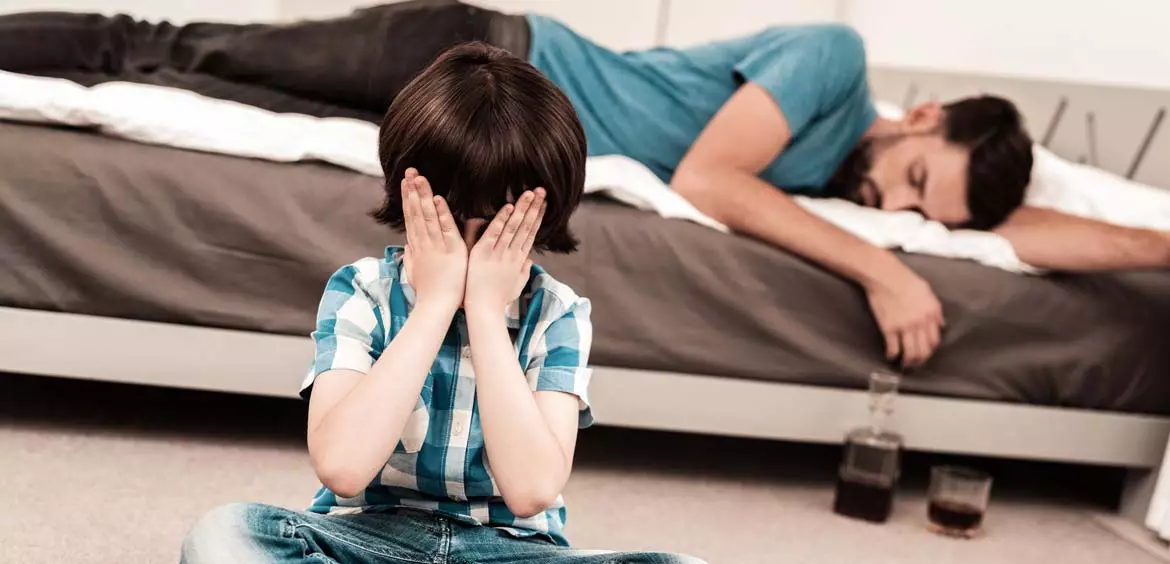According to the National Center for Drug Abuse Statistics, 50% of people over 12 years have used illicit drugs at least once.
Addiction destroys the lives of thousands of Americans each year, whether it’s a problem with marijuana, cocaine, or alcohol. It is a chronic mental health disorder that causes you to abuse substances or engage in destructive behaviors. Addiction can ruin families, careers, and friendships and threaten your essential health and safety.
Drug and alcohol addiction is a serious problem in America. If left untreated, various substance or alcohol addictions could stop your life any day. Since addiction is a progressive disorder, addiction worsens over time if you don’t get help. If you or your loved one is struggling with addiction, get help today.
Addiction is a complex disease of the body and mind. Keep reading to find out what makes an effective drug rehab for Glendale Arizona, and how to get started with treatment.
24 Hour Addiction Hotline
What’s Drug Addiction?
Table of Contents
Addiction refers to the state where you can’t resist the urge to use drugs no matter the consequences. It’s a disease that affects your body and mind.
Drug use is highest among persons between the ages of 18-25. Drug abuse isn’t about illegal substances only. You can get addicted to anti-anxiety medications, nicotine, and other legal substances.
At first, you can decide the time and quantity of drugs you take, but these legal or illicit drugs take charge of your brain over time.
Factors That Influence Addiction
People react differently to drug abuse. Some enjoy the feeling the first time they use a particular drug, while others hate it and never use it again.
Addiction can happen to anyone. However, some factors raise your probability of addiction. They include:
- Family History- If your family has a history of drug addiction, you’re more likely to be an addict. Your genes determine nearly half of your behavior.
- Early drug use- Taking drugs at an early age predisposes you to addiction at an older age.
- Troubled Social life- A troubled family relationship may increase your chances of addiction.
- Mental Disorders- If you constantly worry, are depressed, or have difficulties paying attention, you have a significant chance of addiction. A history of trauma is also another contributing factor.
Signs of Drugs and Substance Addiction
Here are the warning signs of addiction:
- Taking more drugs than prescribed and for an extended period than recommended.
- Always carrying the drug and buying it at all costs.
- Using the drug despite its consequences at work, school, or family.
- Self-neglect.
- Lying, stealing, or engaging in dangerous behaviors to afford the drugs.
- A compulsion to use the drug many times in a day.
- Feeling sick and weak when you try to quit.
Common Types of Drugs That People Abuse
People may abuse almost any drug whose use can lead to a “high” (euphoric) feeling. While the most abused substances in most states are alcohol and marijuana, others are less known. The following are common types of drugs that are commonly abused, leading to dependence:
Alcohol– Alcohol is a toxic substance that may have devastating effects when used excessively. Alcohol addiction can affect your ability to perform at school, work and in social life.
Caffeine– While it’s common to see people taking soda, coffee, and tea when abused, this substance can be addictive and lead to significant anxiety, insomnia, palpitations, and irritability.
Amphetamines– Amphetamines come in different forms, from prescription drugs such as amphetamine, dextroamphetamine, and methylphenidate (such as Concerta and Ritalin) to illegally manufactured ones such as methamphetamine (“crystal meth”). Overdose of these drugs can lead to death.
Anabolic Steroids– Athletes and bodybuilders often abuse this group of substances. Anabolic steroids can cause devastating emotional problems such as paranoia and aggression, and long-term side effects may include infertility and organ failure.
Cannabis– Also known as marijuana, it’s one of the most commonly used illegal drugs in the U.S. Some of its adverse effects include paranoia, lack of motivation, and difficulties with sexual performance.
Ecstasy– This drug creates a sense of euphoria and a desire to nurture others. In overdose, ecstasy can increase your body temperature to a point leading to death.
Hallucinogens– Common examples include mescaline and LSD and naturally occurring hallucinogens such as certain mushrooms. These drugs alter the perception of users leading to dangerous behaviors. For instance, someone “high” on hallucinogens may interpret a hazardous situation as not and vice versa.
Inhalants can be found in household cleaners like bleach and other fume-emitting substances. This group of substances is easy to access, leading to widespread abuse.
Cocaine– Some people use this drug in powder form while others inject it when in liquid form. It’s a drug that stimulates the nervous system.
The Addiction Recovery Process
Have you ever tried to beat addiction on your own, only to end up in a repetitive cycle of failure? Such frustration can consume your thoughts, leaving you with little energy for anything else.
Perhaps you’re in denial. Telling yourself that you can quit anytime you want is not that bad. It’s understandable, but there’s a way out of the pain. Millions have succeeded, and you, too, will prevail.
To conquer your addiction and start a new life, you need to have a vivid outlook on the recovery process.
Myths About Drug and Substance Addiction Recovery
Myth #1 Quick Fix Is All You Need
Many patients falsely believe that a quick detox in drug or alcohol rehab centers is all they need to recover. While detox is an important step toward addiction treatment, it only marks the beginning of a journey. To succeed, you need to view your addiction treatment as a journey to a new lifestyle.
Myth #2 You’re a Spectator
It would be best if you were prepared to play a critical role in drug or alcohol addiction treatment. You’re also a number one cheerleader to yourself, and you can’t achieve victory alone. It would be best if you had a team to support and encourage you. But success depends on you.
Substance Abuse Treatment – Get Help Now
The Phases of Addiction Recovery
Drug and substance addiction treatment services are meant to achieve long-term sobriety and steer you into complete healing of body, mind, and soul.
Recovery from drug or alcohol addiction is divided into four main phases:
Phase 1- Assessment
This phase aims to obtain a complete picture of your dependency to help you fully recover. An assessment is an interview with a counselor, psychologist, or doctor before admission into a treatment program.
During intake, the interviewer reviews your mental health history, and sometimes they may perform a physical exam and mental health screening. The interviewer will also seek to know the circumstances of your addiction. The interviewer is strictly confidential, and everything you tell them is private.
Valuable Tips for Phase 1
This phase is essential since it lays the foundation for your treatment journey. Here are valuable tips for phase 1:
Honesty: The first tip to laying the proper foundation in this treatment phase is honesty. Don’t withhold information. With addiction comes the heavy burden of shame and feeling of unworthiness, but don’t let these emotions drive you to withhold information.
Misleading statements about your substance abuse, such as lying about how much of a specific drug you use or your frequency, can seriously thwart your success from the beginning. A successful journey starts in this phase, and it’s essential to be as open as possible.
Trust: You may not understand some matters at this stage, but you must believe that the doctors have your best interest at heart. You may be convinced that this stage is unnecessary, but everything will make sense in the future. Trust will help you smoothly fit into the program.
Phase 2: Detoxification
This addiction treatment stage aims to eradicate your physical reliance on the drugs you use. This process varies greatly, for it is determined by the severity of addiction and the drug you’re detoxing from. For a severe addiction case, doctors can recommend medical detox. This phase is physically demanding, and you should expect several withdrawal symptoms.
Common Withdrawal Symptoms
These symptoms vary from one drug to another. However, since many drugs affect your neurological process similarly, withdrawal symptoms are often similar.
The severity of these symptoms depends on factors such as:
- The drug abused
- Duration of addiction
- Family history
- Quantities used
- Mental health status
- Common symptoms include:
- Insomnia
- Irritability
- Depression
- Sweating
Valuable Tips to Success in Phase 2
The key tip to success in this stage is simply grit. This phase is a physically demanding stage that is core to your treatment. The pain might be too much, but It’s only temporary. Don’t give up.
Phase 3-Rehabilitation
The primary goal of this addiction treatment phase is to help heal mental wounds created by addiction. Many will agree they started reaping benefits in this phase. To have a complete picture of phase 3, it’s important to understand a little about addiction.
While addiction is a complex matter, common patterns are evident. First, many people who end up in drug and alcohol addiction have unresolved pain and trauma from their past. In some way, this pain fuels the addiction. Whether it is marijuana or alcohol addiction, drug abuse often is purposed to help you to numb those strong emotions. For this reason, detox can’t be the final solution.
There are underlying issues to substance abuse that can’t be solved through detox. Glendale AZ rehabilitation or treatment center equips you with the tool to uproot the roots and plant a new seed.
Valuable Tips to Success in Phase 3
Vulnerability– Being vulnerable in this phase is not a weakness but an essential key to creating a new healthy lifestyle. Those suffering from addiction may live under the heavy burden of shame, making vulnerability a scary experience. You’ll find that the more open you’re during this stage, the more you create opportunities for your healing.
Embrace new you- Since you have spent so long ignoring your feelings, you’ll likely feel uncomfortable once you start to experience emotions again. Sobriety may open a window for underlying feelings and pain but don’t give in to the temptation of wanting to go back. A key piece to success at this point is to embrace your feelings.
Phase 4- Aftercare Program
The fundamental goal of this phase is to ensure you maintain recovery long after you leave the program. This phase is essential to helping you also attain a healthy lifestyle.
Benefits of After Care
The aftercare program aims to equip you with the necessary tools to help you fully recover and enjoy a healthy lifestyle, even after leaving the rehab center. With the help of support group meetings, Glendale AZ rehab centers follow up to ensure that you receive continuous recovery assistance at home.
The ongoing support is meant to help you overcome setbacks, including relapse, that may happen post drug and substance addiction treatment. For many, this phase marks a significant milestone in the recovery process, supporting the successful completion of treatment.
Continuous support is necessary since post-acute withdrawal symptoms(PAWS) sometimes last up to 18 months after detox.
Common PAW symptoms include:
- Diminished appetite
- Poor sleep
- Anxiety
- Depression
- Poor concertation
- Mood swings
If you’re ill-equipped to handle the above symptoms, it’s easy to relapse.
Ongoing therapeutic support helps patients acquire healthy coping mechanisms to reduce the risk of relapse. As a newly recovering person, spend your free time with individuals who have more time in recovery than you—spending time with people who have less or the same amount of clean time as you put you at significant risk of relapsing.
What are the Benefits of Drug and alcohol Rehab?
Glendale, AZ rehab offers the right environment, therapies, and treatments designed to overcome addiction. Drug (s) addiction is a psychological, physical, and mental disease that calls for multiple treatment approaches. Drug rehab helps you create a healthy lifestyle, and it also helps change your attitude and behavior regarding drug and substance abuse.
Here are the benefits of a rehab treatment center, and strong aspects of our programs at Emerald Isle Health & Recovery:
Structure
The structure is one of the top reasons that make inpatient treatment programs in Glendale, AZ, the best choice for treatment. Most treatment options insist on having daily routines full of counseling services and productive activities to help keep patients busy and eliminate distractions.
There are breaks between counseling sessions to allow patients to process what they learned. Breaks also offer an opportunity to relax and discuss new coping skills.
Addiction to drugs makes you develop behaviors and ways of thinking that facilitate addiction and unhealthy habits. A new routine is critical in replacing negative patterns with constructive ones focusing on treatment.
Our Glendale AZ inpatient treatment program structure establishes a simple daily routine that prioritizes sobriety while maintaining a healthy lifestyle that patients can adhere to post-treatment. Continuing the newly acquired ways of living in post-treatment programs means you won’t be seeking relief from drugs once you return home.
A Supportive Environment
Another major benefit of the Glendale, AZ drug rehab center is that it provides patients with a safe and supportive environment. In rehab, you’re surrounded by people who deeply understand your condition. Peer support is a crucial treatment feature and key to maintaining long-term sobriety.
An inpatient addiction treatment program offers countless opportunities to interact with people in the same program to establish a support network. These people are on the same journey to recovery as you, encouraging you to overcome challenges you may face. They understand what it’s like to suffer trauma, struggle with cravings, and feel shame and guilt resulting from addiction. A peer support group not only provides accountability but also offers you the chance to support others in their recovery journey as well.
Glendale, AZ, drug rehab centers provide a safe substance-abuse environment. Being in drug rehab is stepping entirely away from your daily routine to enable you to analyze your triggers without having to be in constant interaction with them. This is a significant step in the early stages of treatment.
Round-the-Clock Medical Support
Enjoy access to 24/7 medical and clinical support during your stay at our Glendale, AZ, facility for inpatient rehab. This support is vital for preventing relapse, especially in those with severe addictions.
People in treatment sometimes experience health issues shortly after they stop using the drug that got them addicted. During this phase, patients may experience severe symptoms as their bodies struggle to function without the drugs.
Even after you overcome the initial withdrawal symptoms, the stress on your mind and body can aggravate other mental and physical illnesses. The round-the-clock access to medical help and constant care makes patients feel safe as they undertake their recovery journey.
Free and Confidential Assessment
A Focus on Health
Our Glendale, AZ, treatment programs emphasize health and nutrition, all from convenient locations in Surprise and Sun City. Addiction to drugs and substances deprives your body of crucial nutrients. Treatment centers ensure their patients eat healthy diets to attain proper recovery.
Lack of an appropriate diet may cause low energy levels, sleep problems, and headaches. In a rehab center, a nutritionist predetermines meals to ensure you’re receiving a balanced diet.
Research indicates recovering people thrive on foods rich in fiber and dopamine-boosting diets. Proper nutrition is key to a successful treatment, and a balanced diet boosts mood and improves overall health, which can control cravings and aid prevent relapse.
Equipped with exercise facilities, our Glendale AZ drug treatment centers offers services such as swimming lessons, yoga sessions, and other forms of exercises that strengthen your body and mind. Physical activity is beneficial to people in drug recovery. Exercise makes people feel good about themselves; through it, those in recovery discover they don’t need substance abuse to feel good about themselves.
Exercise helps people in recovery replace self-destructive habits with positive ones, rebuilding faith in themselves. A daily exercise schedule helps fill in time gaps that were once previously spent thinking about substance abuse.
Establishing New Habits
Many people with a history of drug addiction have poor self-care habits. An Important aspect of self-care for a patient in drug treatment is setting and attaining goals. It’s crucial to approach goal setting with the right mindset. If you continuously set goals but keep falling short, the repetitive cycle of failures can weaken your resolve to a point where you give up. The resulting frustration can make you fall back into your old self-destructive habits.
Rehabs teach patients how to set realistic goals in connection to their treatment plan. These goals focus on your physical, emotional, and spiritual well-being. Rehab centers in Glendale, AZ, equip you with the tools needed to handle stress, manage triggers, prevent relapse, and create a new lifestyle to support your success at the end of the program. The new habits gained will help you handle underlying issues that may have contributed to your drug or alcohol abuse.
Multifaceted Therapies and Treatments at Emerald Isle
Addiction is a psychological, mental, and physical disease. Therapy plays a crucial role in helping recovering patients understand the triggers of their drug use and how to develop healthy coping mechanisms.
Therapy helps you find errors in your thinking that may lead to destructive drug-related decisions and how to positively tune those thoughts so that they become healthier.
In addition, effective therapy can reduce your chances of relapsing and help you get back on your feet when you relapse. Our Glendale AZ treatment programs carry countless therapy options since no single treatment fits all. The core aim of therapy in rehab is to help patients gain new attitudes, behaviors, and beliefs to help them overcome drug and alcohol addiction.
Here are some evidence-based addiction therapies offered at our treatment centers convenient to Glendale:
- Contingency- Behavioral Therapy
- Contingency management
- Behavioral Therapy
- Integrative approach
- Dialect Behavioral Therapy
The therapy you’ll receive depends on your drug abuse type and personality. Customizing treatment settings and services to a patient’s particular problems is essential to their ultimate success in returning to everyday life after treatment.
Other therapy options that can help patients recover include Tai Chi, meditation, and exercise routines. These alternative therapies all recommended ways to improve mental concentration, release stress and boost the overall mental health of a patient.
Immediate Placement Available – Call Now!
What is the Average Cost of Rehab
The average cost of drug rehab is $33,475 per person. Inpatient rehabilitation programs may cost you well over $40,000 per month in some regions, while the average cost of outpatient treatment for a three-month program is $15,000 or more, depending on client needs and frequency of group therapy and other services.
Don’t Wait. Reach Out for Help Today!
If you or your loved one is suffering from drug and substance use disorder, you should know you’re not alone, and we are here for you.
Our rehab facilities next to Glendale offer customized treatment plans to help you identify and overcome the underlying problems that led to substance use disorder. While the primary aim of Emerald Isle is to help our clients conquer addiction, we also pride ourselves on providing resources for building a meaningful and healthy life.
If you are in Glendale AZ or the surrounding areas, give yourself a break and reach out to Emerald Isle Health today, we are ready and waiting to help you recover!





